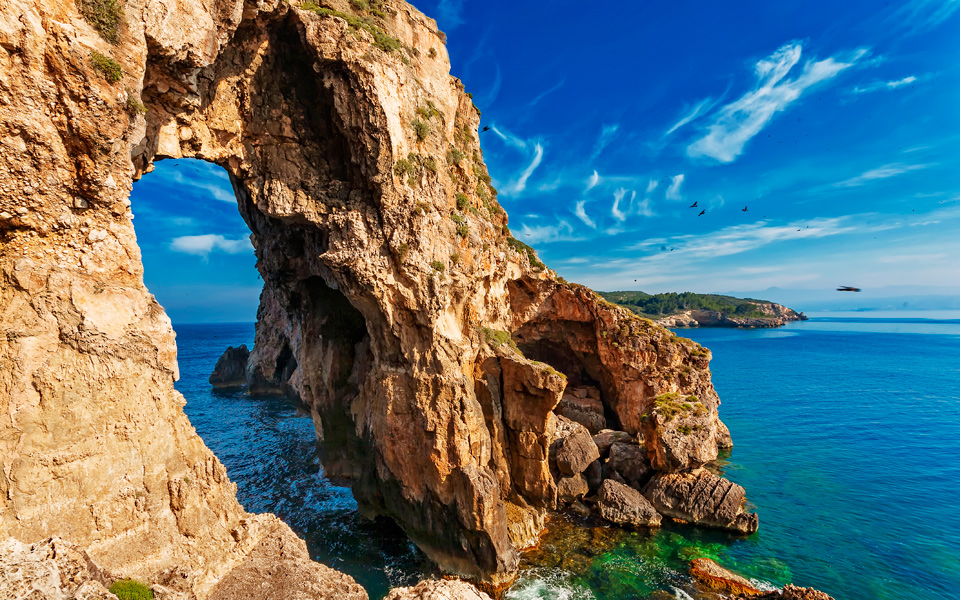When you need to spend four hours a day on dialysis during your vacation, you want to make sure that the other 20 will be perfect. This is exactly what 45-year-old Edinburgh patient D.S. was looking for after suffering acute kidney failure that had nearly cost him his life during a trip to France with his wife. After researching the medical facilities available at various destinations where they could combine a holiday with his treatment, the couple chose to spend 10 days in sunny Greece, splitting their time between Athens and Crete. The friend who told me their story assures me they had a wonderful time. On the island, a member of staff from a local clinic would pick up the patient from his hotel at 6.30 am sharp, take him for treatment and bring him back at 10.30 am, after which he was free to enjoy the charms of Crete for rest of the day. He also used his European Health Insurance Card, so that cost was not a serious concern.
This story is but one among thousands and demonstrates just one of the many categories of medical services offered in Greece. It also illustrates something that most Greeks and visitors do not know: that the country which attracts more than 25 million visitors a year from around the world, mainly for its sun, sea and antiquities, is also equipped with all the facilities and services needed to have a dynamic presence in the rather “closed” global health and wellness tourism market. The worldwide value of this market is hard to pinpoint, but international estimates put it at anything between $5 billion and $440 billion.

© Perikles Merakos
The facts are simple: Greece is a safe European country, very accessible, with state-of-the-art private medical facilities and highly skilled healthcare professionals. Its natural environment is extremely diverse and, in many parts of the country, pristine: from high mountains with crisp, clean air, to ancient forests and a lacework of sandy beaches with crystalline bathing waters. Its mild Mediterranean climate is ranked among the best in the world, without violent fluctuations in temperature or weather phenomena. The bounty of its land and sea, moreover, has shaped its quintessentially Mediterranean cuisine, which experts agree has multiple health benefits: its emphasis on extra-virgin olive oil, honey, wine, nutrient rich seafood, fresh vegetables and pulses is a quality that has distinguished it since ancient times. Its rich cultural heritage, local habits and customs, the laidback lifestyle and the hospitality of its people are assets cherished by visitors from far and wide. In many senses, Greece is the epitome of joie de vivre.
The country is blessed with natural springs that rejuvenate body and mind, and mountain trails that inject fresh life into every cell of the body. It has award-winning luxury spa resorts that combine ancient healing practices, natural local ingredients and modern scientific methods, and a philosophy towards health and wellness services that dates all the way back to ancient times. For its many doctors (Greece has the highest ratio in terms of population of any member state of the Organization for Economic Cooperation and Development) it’s an added honor and a responsibility to practice their medicine in the country where the first medical principles were set down by Hippocrates. Their skill and quality is evidenced by the fact that they continue to prop up a national healthcare system that is being stretched to an unprecedented degree by the economic crisis; they maintain the highest standards at private hospitals, diagnostic centers and clinics; and, in the past few years, have been sought after in highly developed nations that are experiencing shortages in expert medical staff, such as the UK and Germany.

© Clairy Moustafellou

© Perikles Merakos
A quick scan of the media and medical journals on pioneering procedures and accomplishments attributed to Greek doctors yields the following: a novel surgical approach to a complex penile urethra stenosis; successful, free-of-charge cardiothoracic surgery on a 13-month-old infant with severe cyanotic congenital heart disease; the first live-streamed global interactive rhinology and endoscopic skull base surgery; the successful excision of tumor in an inaccessible and sensitive area of the brain of a five-month-old infant; the first transcatheter closure of a patent ductus arteriosus (PDA) successfully completed on a low birth-weight preterm neonate; transcatheter techniques for aortic valve insertion; laser prostatectomy with the latest generation XPS GreenLight Laser; total hip arthroplasty using the revolutionary ASI technique causing minimal trauma to the soft tissue; the successful artificial insemination without hormones of a woman with polycystic ovaries after two unsuccessful IVF attempts abroad… and the list goes on and on.
What is not on the official record but is widely recognized by Greeks overseas and foreigners seeking medical treatment in Greece is the personal touch offered by doctors and medical staff here, the confidence inspired by professionals who never lose sight of their humanity: the encouraging pat on the shoulder, the warm smile and being treated as person, not just as a patient.

© Perikles Merakos
What Greece did not have until a few years ago was a coordinated strategy to promote its image and qualities as a top medical tourism destination. It has been making significant inroads, however, building an ever-more dynamic presence in the sector, an effort being spearheaded by the Greek Medical Tourism Council (ELITOUR), whose members consist of medical and tourism service professionals, air carriers, travel and marketing agents and all the other players in the health tourism business.
These efforts are now being augmented by the newly founded Greek Health Tourism Confederation, the brainchild of pediatrician Dr. Constantine Constantinides, a visionary who is proposing a more “holistic” approach to give Greece a competitive edge by combining cultural, sports, gastronomic, nature and geriatric tourism in tandem with health tourism.
With a presence in international conferences and exhibitions, targeted campaigns in key markets and innovative proposals on how the Greek state can embrace and coordinate the effort, the private sector has seized the initiative to give Greece the place it deserves on the global health service map. The time is ripe, and this issue of Greece Is hopes to do its part so that more visitors can discover – and benefit from – the country’s many qualities that contribute to a healthy, happy life.












